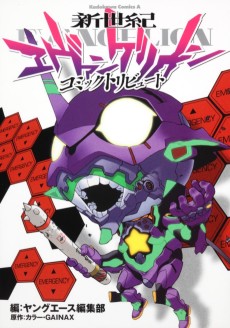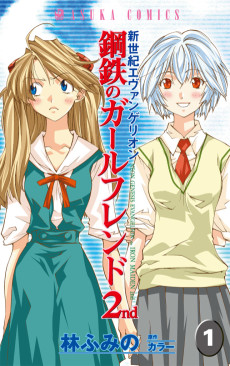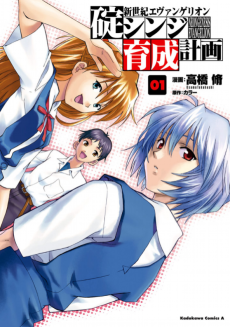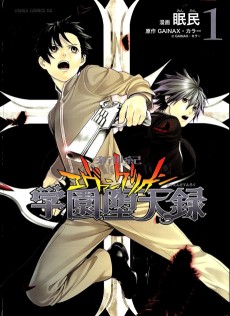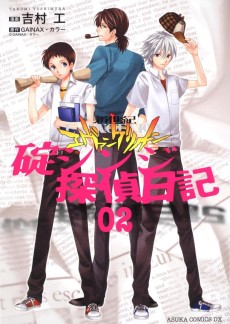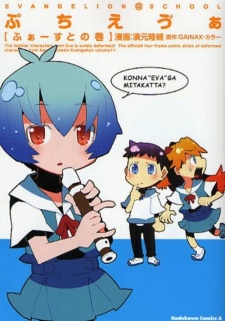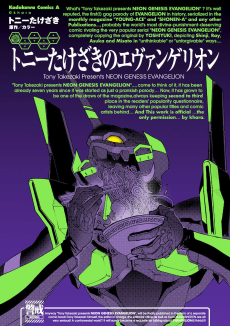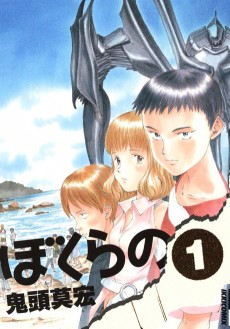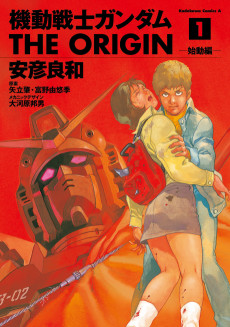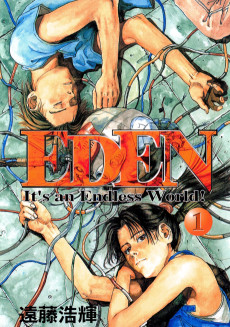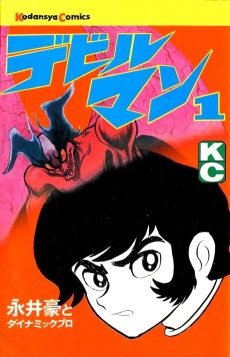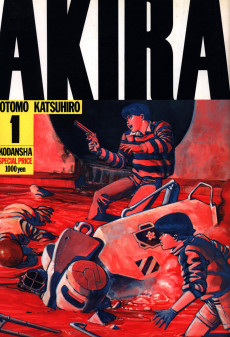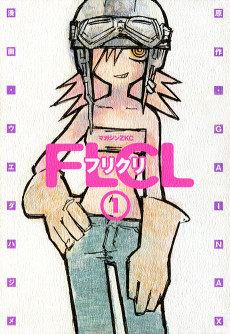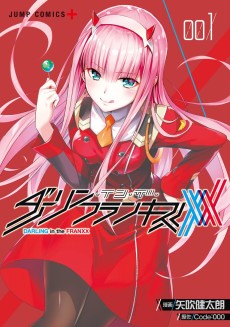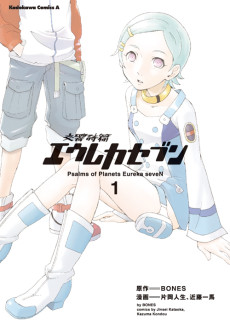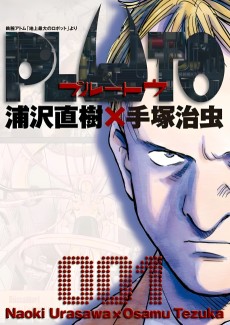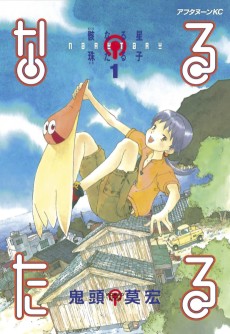SHIN SEIKI EVANGELION
STATUS
COMPLETE
VOLUMES
14
RELEASE
June 4, 2013
CHAPTERS
97
DESCRIPTION
In 2015, the "Angels" have returned, and Shinji Ikari, a fourteen year-old child of the new Earth, is forced by his father Gendo--commander of the secret organization NERV--to pilot the monstrous biomechanical weapon called "Evangelion" to match the Angels' fearsome power...
(Source: Viz Media)
CAST

Asuka Langley Souryuu
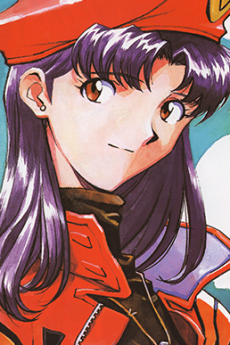
Misato Katsuragi
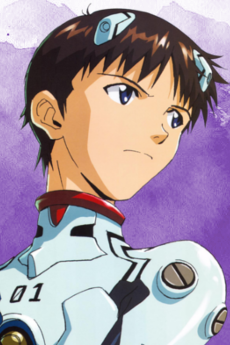
Shinji Ikari
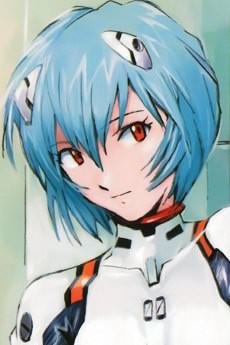
Rei Ayanami
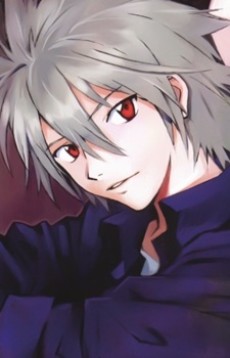
Kaworu Nagisa
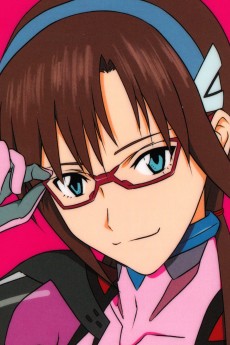
Mari Makinami Illustrious
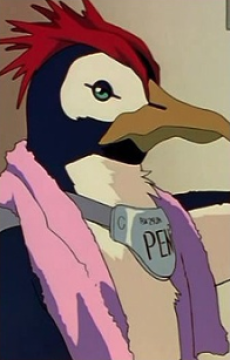
Pen Pen
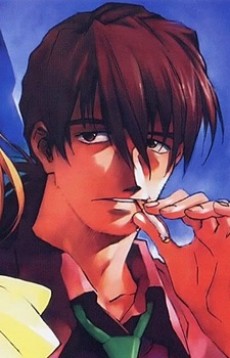
Ryouji Kaji
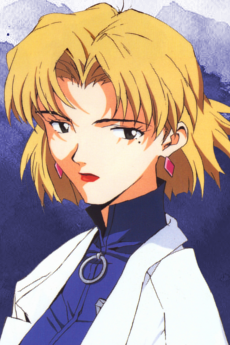
Ritsuko Akagi

Gendou Ikari
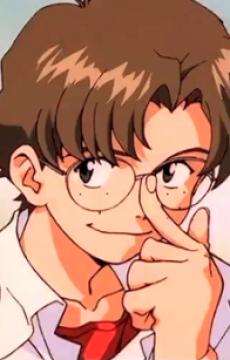
Kensuke Aida
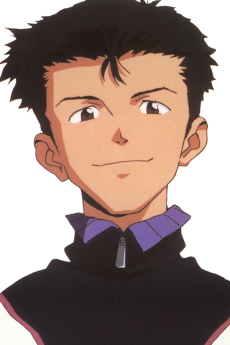
Touji Suzuhara
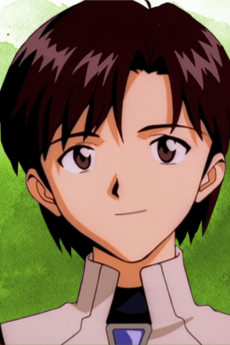
Maya Ibuki
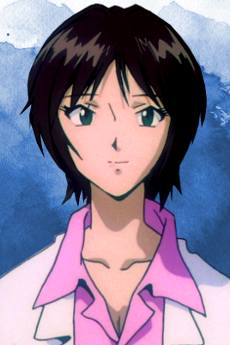
Yui Ikari
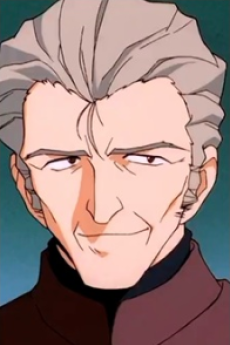
Kohzou Fuyutsuki
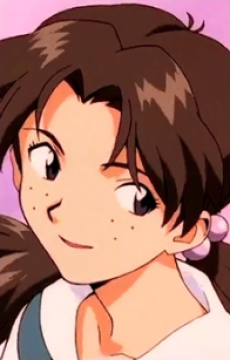
Hikari Horaki
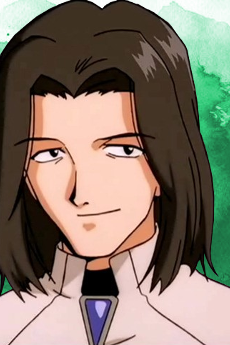
Shigeru Aoba
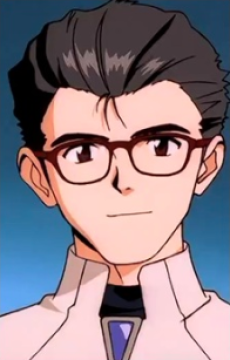
Makoto Hyuuga
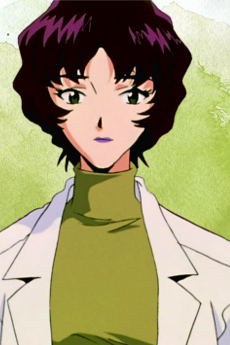
Naoko Akagi
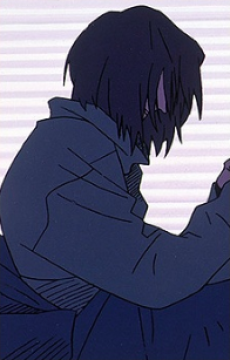
Kyouko Zeppelin Souryuu
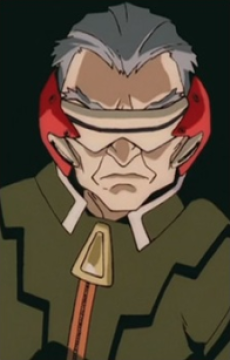
Keel Lorentz
CHAPTERS
RELATED TO SHIN SEIKI EVANGELION
 ANIME ActionShin Seiki Evangelion
ANIME ActionShin Seiki Evangelion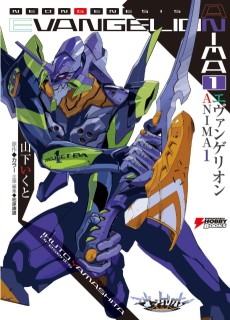 NOVEL ActionEvangelion: ANIMA
NOVEL ActionEvangelion: ANIMAREVIEWS

hoeberries
90/100Writing Eva Without AnnoContinue on AniListWhilst anything Evangelion is hard to disentangle from Hideaki Anno, the manga is a personal project of character designer Yoshiyuki Sadamoto and, as far as I can tell, no one else. Starting in 1994 as a companion to the upcoming TV series, it kept going all the way to 2013, telling the story from beginning to end with little-to-no nonsense.
What a shock.
Or maybe it shouldn’t be? Because the manga has no Anno attached, and considering that, it shouldn’t come as a surprise that this is the most consistent, coherent, and instantly enjoyable piece of Eva media. It tells an unsegmented story that closely resembles the original plus End of Evangelion, writing most characters better than ever and giving the series the optimistic ending Anno tried to do with the rebuilds, but ended up veering off the rails for twenty years only to produce an irrational, unconvincing, flea-ridden Eva fanfiction carried by a few Hikaru Utada songs.
Seems like, while certain others in the OG crew fell off (Tsurumaki too if he really was in charge of “Mari Makinami Illustrious”), Sadamoto held on. Maybe that’s because his version of Eva was not as dependent on his feelings. Or maybe, with this project, he had the benefit of working at his own pace, without merch-hungry producers breathing down his neck. Or maybe he’s just a better writer. Either way, this manga is good, and that’s coming from me, someone that doesn’t even adore Eva that much, save for the second moon of every month when I morph into a snarling, slobbering Shinji obsessive equipped with Mitski music and salty tears.
Changing Eva is always going to mean changing Shinji, so he's different here. He's actually almost cool. Sadamoto's protagonist certainly mopes around a bit, he doesn’t put up with other people’s shit nearly as much, and he’s even sassy in some interactions. NOT MY SHINJI. But I have to admit, he’s a lot more likeable. As such, I feel like this appeals to those who can’t wrap their head around sad, despondent Shinji (if so, practice empathy please), along with Eva non-fans in general. But it’s a refreshing change no matter who you are. I mean, I love him being a bitch, because same, but when my boy grows a backbone from time to time, I can’t help but enjoy that in a different way. In a “this might just be a competent story with likeable characters” type of way. Which... isn't the Eva I occasionally love. But it's not all that different, either. What about everyone else? Rei is more defined and tangible compared to her anime counterpart, paving the way for several manga-only moments that elaborate on her relationship with Shinji, similar to the second rebuild (though without the housewife gymnastics). Asuka is also more likeable, meaning she is not quite so mean. Several characters (like Kaji) get expanded or original backstories that would have been welcome in the anime. Kaoru is completely revised. No longer is our favourite homoerotic angel boy a cheeky homoerotic tease 100%-most-likely-inspired by Kunihiko Ikuhara blowing Anno in the hot springs. He's now a pussy slayer (he straight-up kills a cat) and a low-key sociopath, which, in some ways, fits a lot better with other Sadamoto changes (Shinji, we must remember, is not nearly as withdrawn as he is with Anno, meaning the normal relationship with Kaoru would not carry the same weight). It is in this way that Sadamoto takes us through a familiar framework, but he throws in enough original curveballs to keep us on our toes. Much of the flub (content of episodes “A Human Work” and the notorious “Magma Diver") is cut out or replaced with more backstory. This makes for a fun, concise way to re-experience the story while still getting something new. Another great incentive for reading this after Anno's Eva is that it is willing to give characters the beats and triumphs that were denied in the past. I know a few Eva fans that dislike the tragedy of _End of Evangelion,_ and while Sadamoto follows the same beats, he does so in a much rosier way. To provide a spoilery example... <span class='markdown_spoiler'><span>THAT MOMENT WHEN RITSUKO ACTUALLY SHOOTS GENDO IN THE FUCKING THROAT AND KILLS HIM, LIKE I WAS WAITING FOR THAT MY WHOLE LIFE?? LIKE YES GIRL KILL THAT MAN FOR WHAT HE DID! Oh, and it was nice to see Shinji save Asuka from the MPE gang too, though as the world's only Ritsuko stan, I choose to fixate on other things.</span></span> Oh, and in a bonus chapter, Sadamoto makes more of a character of Mari in a couple panels than Anno and the gang did across four movies. Not that I wanted to see her again. ~~~~~~<img width='' src='https://i.pinimg.com/originals/8b/89/c3/8b89c33c439f01945752c120853ebea3.jpg'> I don’t think this does everything better. While certain characters are cleaner, they also lack some of the depth that they have on TV. Asuka, for instance, is flattened and straightened out in the manga, especially to do with her relationship with Shinji -- something that, whether you like it or not (I love that relationship) adds a lot. Also, TV Shinji was tripping esoteric budget-cut balls every few episodes, often to great effect. You won’t get any of that in the manga. It’s a lot more straightforward. Of course, it’s still Eva, so it’s not _completely_ straightforward. But it is presented in a way that is stylistically consistent, lacking the bouts of pretentious confusion that leave people scratching their heads. It also lacks some of the most memorable flourishes of the anime, such as the soundtrack or Anno's taste for these eerie still frames. So that’s the big forfeiture, right? This is consistent. It’s enjoyable. It even sticks the landing. You distil Eva to its strongest narratively, but you lose out on a lot too. You miss the awry, emotional chasms marked by Shinji’s depressive episodes, you miss those soaring, traumatic peaks accompanied by Megumi Ogata's ear-shredding screams, and of course engineering all of this is Hideaki Anno's bubbling, black-oil sincerity: his unique artistry that extends to all characters, all facets of the story, and sadly (though, really, happily for him) indiscernible but for small pockets in anything post-_End of Evangelion_. But oh well. We've established the manga is quite good in its own right. With Eva, though, it all comes down to the final note. Where does Sadamoto leave us? Where does it fit? Here’s my opinion: There are four Eva endings. They all push the same shit (it’s worth loving people even though they hurt you) (don’t run away from your problems) (probably best not to become fanta gloop) (just fucking go outside ok). One ending caps off the 1997 series: an improvised but thematically affirming project that takes us into Shinji’s psyche and basically just spells out his character growth, ending quasi-happily. It is usually combined with the _End of Evangelion:_ a monumental movie that, while presenting a similar Ted Talk in theory, is set apart by its horrific framing that leaves our protagonist the psychological equivalent of a dumpster fire. Most recent is _Thrice Upon a Time,_ that, after a mess of “rebuilds,” proves the series’ thesis with a no-nonsense sunshine-and-rainbows ending that (to me) feels unearned and unconvincing. And then there’s also Sadamoto’s manga, which guides Shinji Ikari to a place that I do not want to fully describe if you haven’t seen it play out: stable but just slightly wobbling, standing before a billowing world of flecked snowflakes where an optimistic future, terrible as it could be, extends to infinity. There’s a real purity to it; purity that you could say is untrue to the spirit of Eva simply in how resigned it is to being clear and purposeful. It’s never going to be my favourite ending, not over what, due to the buzzing, resonant hive of flaws and contradictions of its creator, still stands as some of the most compelling animated anything for so many people. But it is still special. It is, I’ll say, the least flawed. It is clear and true and still emotional in spades. And it is _Evangelion._
ekdsc
90/100An incredible way to experience Evangelion for the first time, a second time.Continue on AniListLet me preface this with - if you haven't seen the anime, I can't really say if you'll enjoy it less or not, but you'll certainly be unable to appreciate a lot of what it does with the source material. I'll also be running on the assumption you've actually watched the anime first, because it's hard to talk about this manga at all if you haven't, and you really, really should! So, unmarked spoilers for that abound from this point forward.
The Neon Genesis Evangelion manga is, to oversimplify, a loose adaptation of episodes 1 - 24 as well as End of Evangelion. Most of the context is the same, the series hits many of the same plot points, and for the first few chapters it will feel like an outright retelling of the series, albeit working on an older version of the story. However, you will pretty fast discover that this is not one-to-one with the Evangelion you know. About halfway into the manga's equivalent of the first episode, we get to the part where Shinji refuses to get into the Eva, with the team wheeling out a heavily injured Rei, and a light fixture falls from the roof. However, it doesn't fall above Shinji, with the Eva throwing its hand out to save him - no, it's falling onto poor Rei, and Shinji throws himself to get her out of the way without the second thought!
The manga pretty quickly establishes this Shinji Ikari isn't the same as the one from the anime through changes like these - sure, his confidence is still at an all-time low, and he's still deeply depressed, but this Shinji has significantly more self-agency, he's more openly emotive, he's more ready to act for the people he cares about. Throughout the series, we're presented with a Shinji who's more willing to open his heart to others and let down his ego. It's a nice change of pace after going through the entire series with a clamped up Shinji and opens the series to different emotional plotlines that the anime could never have explored. It's not necessarily better, but it's not worse either - it's different, and it's the manga's biggest strength. You're not experiencing Evangelion in a different format, you're experiencing a different Evangelion.
The story has a lot of fun altering how its characters react and interact with each other. Asuka is a lot less aggressive yet more independent, Misato is a lot more motherly, Shinji's other classmates get different arcs entirely (mostly) by just changing how they percieve others. The biggest beneficiary of this is Rei, who in the anime more or less completes her character arc in Rei II when Shinji encourages her to smile. In the manga, she's given a lot more character and a lot more things to do - she has significantly more dialogue than she does in the show and has ongoing plot threads through to the end of the series that aren't just the fact she's a clone. It's one of the things I'd say the manga does outright better than the anime.
It's hard to talk about this manga without talking about its production. The sole person to work on it, Yoshiyuki Sadamoto, is also the guy responsible for a majority of the main series' designs, from the main characters to the iconic Evangelions themselves; he's probably the guy who understands it the most aside from series creator Hideki Anno. The series was also conceived as a way to promote the show, but due to production issues with the show, released an entire year prior - it then was updated periodically over the next two decades, with the final chapter releasing well after the third Rebuild film. Those two factors, combined, make the fact this deviates very heavily from canon so interesting.
You can tell that once the series finished airing, Sadamoto felt the agency to make more significant changes to the story - all the significant plot changes are found in Volume 4 onwards, such as the manga's equivalent to the episode Asuka Attacks! being completely rewritten so none of the characters are on the ship to meet Asuka and instead meet her later, or how Kaworu is bumped up to main cast - oh yeah, Kaworu goes from being a one-episode character to being there for a FULL THIRD OF THE SERIES. His character (and his relationship with Shinji) is the most radically altered from his anime equivalent, in part to account for him appearing much earlier in the story but also in part to give him more things to do than invading NERV. It's hard to talk about these changes a lot more in-depth without spoiling them, but it's at the very least one of the most interesting changes made to the source material.
That's it for non-spoiler stuff. I do have a few criticisms - trust me, the praise isn't unanimous - but they're so spoiler-heavy and mostly late-game that you might as well just dive in. If you're interested in them, I've tagged it in a spoiler section at the bottom (alongside some other big spoiler thoughts) but trust me, just go in blind. All in all, it's not a particularly long series only clocking in at under 100 chapters, and if you even only somewhat enjoy Evangelion you should really give this one a read. It's in my opinion, incredible, and in some places improves an already pretty amazing anime (and if you're checking this out you probably already agree with that sentiment!).
Slightly more nuanced but spoiler-heavy section:
First off, one of my favourite changes to the series is how it approaches Toji and the Fourth Eva/Angel. This change is pretty evil, but it elicited such an emotional reaction from me that I can't get upset about it. Shinji is informed beforehand that Toji is the Fourth Child, and upon having control stolen away from him, Toji is killed. It's a pretty shocking change, and one that leads to a return to the more cowardly Shinji we're familiar with from the anime. His trauma is compounded tenfold, and he's too afraid to show his face to his friends. At first, I thought this was an excuse to write out Hikari and Kensuke, since this erases what little plot they had from the series besides leaving Tokyo-3, but then we return to them a few chapters later. And Hikari hates Shinji. She says it herself - they can never be friends again. Kensuke says something similar over the phone on his leave from the city. It's heartbreaking, and the fact there are such deep consequences for Shinji's cowardice is awful in such a good way - it eventually plays into Shinji's plot in the End of Eva section of the books, which is extra satisfying. This was one of the main changes that really solidified the manga as amazing in its own right for me.
There are a couple things preventing me from calling this the definitive version of the series. For example, Gendo's characterisation is worse, which is a shame. His motivations and actions are much more one-dimensionally villainous - it does make his comeuppance a lot more satisfying, but we lose out on the conflicted Gendo who apologises to Shinji in his last moments before being ripped to shreds by EVA-01. He also, comically, can generate an AT shield when he places Adam in his hand. It's a bit silly. Asuka is also written out of the series for a bit, for the sake of putting Kaworu in her place - this does happen in the anime, but instead of a single episode, it's several volumes where she's essentially a comatose non-character. While this does let Kaworu shine, I wish they'd let Asuka do something during that downtime, or at least not kept her comatose for the entire thing.
My main complaints, however, are directed towards the end portion of the manga. For better or worse, the manga decided to accurately adapt End of Evangelion - which, if you've read the actual series, comes off as an incredibly bizarre choice as the changes to characters and plot are so heavily stacked at this point that the series is headed to a different conclusion. It makes it all the more bizarre when in the midst of this incredibly accurate EoE adaptation, Sadamoto decides to make the single biggest change to the film's story he could pick - Shinji saves Asuka from the mass-produced Evas! Not only does he do this, but he does this after his pep talk from Misato (who gets a significantly cooler death in this one I must say), and after deciding that fuck, he would like to save Asuka, he cares for people no matter how much it hurts. He also does this right after getting off the elevator, instead of moping by the Eva while Asuka gets obliterated, in perhaps his strongest show of self-agency. This Shinji has completed his emotional character arc without triggering Instrumentality. This change itself isn't negative - if anything, it's one of my favourite moments in the manga, because it shows how much manga Shinji has changed and grown compared to anime Shinji. No, it's what happens right after that's most confounding, because Shinji triggers Instrumentality anyways. I genuinely thought this adaption was going to do away with Instrumentality, and the story sure does fake you out by making you think that, playing with your understanding of the events of EoE. It's only done to maintain consistency with the series, and it feels like such a boring choice, as it's pretty quickly undone as Shinji has, again, already completed his emotional arc, and he already knows he prefers people not being a big soul soup. It does, at the very least, tie up Rei's story, which to be fair I'm not sure how they'd go about otherwise, but it's a befuddling change at the end of an otherwise incredibly written and at times superior version of Evangelion. I'm also not sure how I feel about the whole timeline reset thing in the final chapter, although I'm less hung up on that than I am the manga version of Instrumentality. I don't necessarily hate it. Spoiler thoughts over!
SIMILAR MANGAS YOU MAY LIKE
 MANGA DramaOyasumi Punpun
MANGA DramaOyasumi Punpun MANGA ActionFire Punch
MANGA ActionFire Punch
SCORE
- (4.2/5)
MORE INFO
Ended inJune 4, 2013
Trending Level 1
Favorited by 2,341 Users

